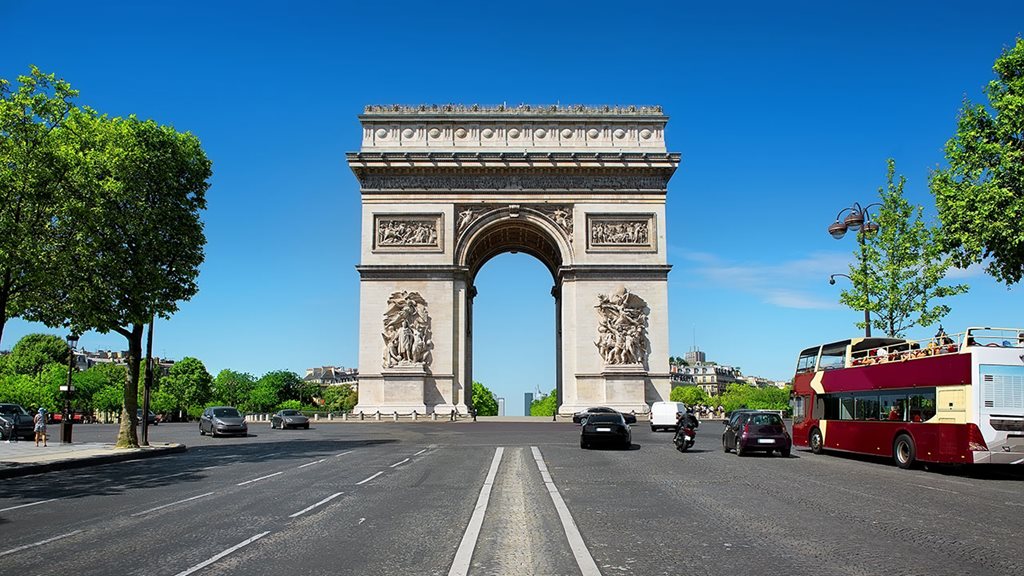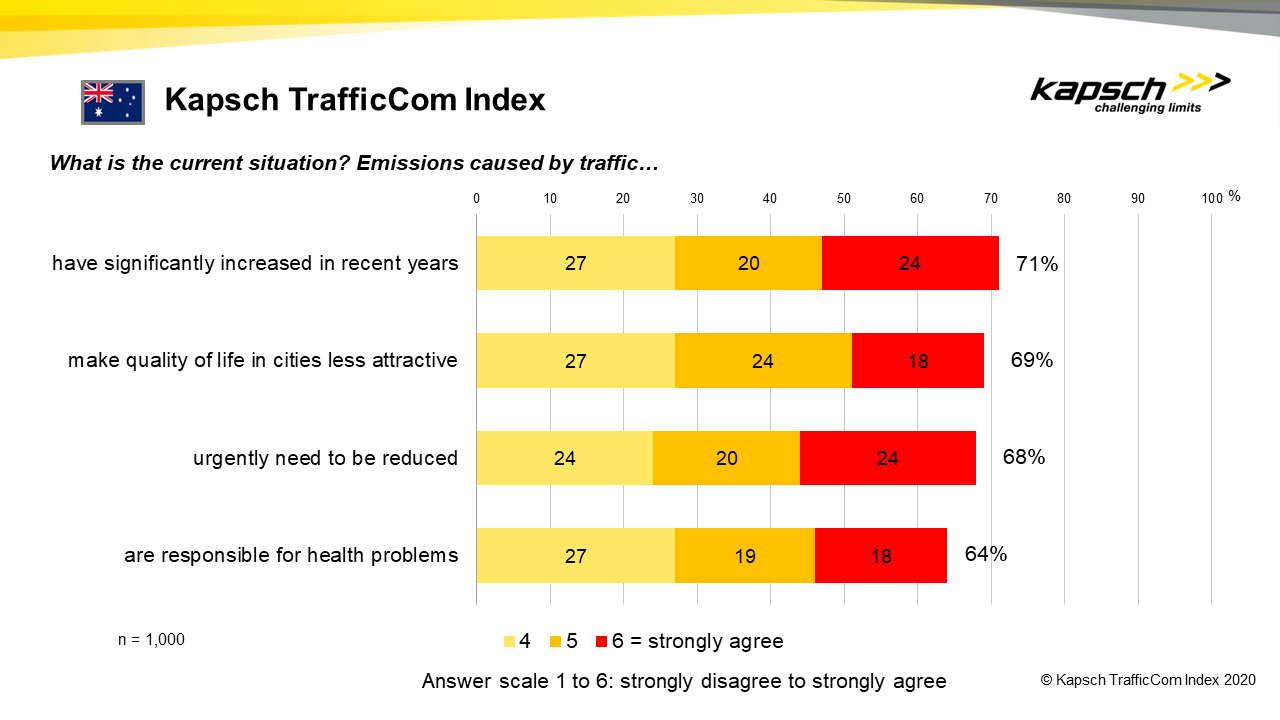- Press
- Press releases
- What Australian cities can learn from …
What Australian cities can learn from the “15-minute City” Paris.

- Road traffic largest source of air pollution in cities according to WHO
- 69% of Australians citizens see quality of life as being impaired by emissions
Melbourne. October 22, 2020 – 68 percent of Australians urgently want to reduce emissions from road traffic. 64 percent believe noise, air pollution and other burdens for health problems – these are findings of the representative survey “Kapsch TrafficCom Index 2020”. New concepts such as the “15-minute City“ in Paris point the way to prolonging people's experiences with cleaner air and less traffic in post-corona times.
The negative effects of road traffic have returned very quickly to the political agenda after the lockdown during the corona crisis. The common approach in Australia is on zero emission public transport and the creation of urban congestion zones. In Europe, Paris Mayor Anne Hidalgo is pursuing nothing less than an urban planning revolution with her concept of the "15-minute City": Parisians should be able to reach everything they need for life from their doorstep within fifteen minutes on foot or by bike: grocery stores, health centres, schools, parks and workplaces. To make this possible, Hidalgo’s first step was to block central traffic routes for cars and convert them into bicycle expressways.
What we can learn from the “15-minute City”.
“Paris was quick to react to the pandemic, minimising the impact of COVID-19 with a new mobility concept that made social distancing easier,” says Matthew McLeish, Executive Vice President Asia-Pacific at Kapsch TrafficCom. “While many cornerstones of the 15-minute City concept are basically correct, it is also a very long-term approach. But as our survey shows, we need quicker wins to keep traffic-related emissions at the current levels, and to reduce them even further in the future. We can offer intelligent transportation systems today to reduce congestion. These solutions not only allow for immediate improvements. They also lay the basis for flexible and sustainable long-term changes.”
Digital technology provides opportunities.
The goal of clearing the streets for bicycles and pedestrians is pursued by many future-oriented cities around the world. “But you do not achieve a significant impact by only shifting the traffic to other districts of the city. Cities need to adopt a holistic approach,” explains Matthew McLeish. That is why he recommends introducing a digitally connected mobility management platform. This includes, for example, traffic light control systems which automatically adapt to the current traffic situation. This would reduce congestion times in cities by up to 25 percent. The widespread use of SIM cards and vehicle-based GPS also makes it possible to capture and use real-time traffic data from all road users to manage mobility intelligently. “To take full advantage of the tremendous opportunities of digitally connected mobility, politicians should work with the authorities and suppliers to develop a comprehensive strategy. We have the tools and solutions to prolong people’s experience with cleaner air and less traffic in post-corona times.”

The survey results reveal a need for action.
About the survey “Kapsch TrafficCom Index”.
The Kapsch TrafficCom index was conducted with the support of a professional market research institute. A total of 9,000 representative in nine countries were asked their views on their current traffic situation, road congestion, and strategies to improve traffic management: USA (n=1,000), Argentina (n=1,000), Chile (n=1,000), UK (n=1,000), Germany (n=1,000), Austria (n=1,000), France (n=1,000), Spain (n=1,000), Australia (n=1,000).
Kapsch TrafficCom is a globally renowned provider of transportation solutions for sustainable mobility. Innovative solutions in the application fields of tolling, tolling services, traffic management and demand management contribute to a healthy world without congestion.
Kapsch has brought projects to fruition in more than 50 countries around the globe. With one-stop solutions, the company covers the entire value chain of customers, from components to design and implementation to the operation of systems.
As part of the Kapsch Group and headquartered in Vienna, Kapsch TrafficCom has subsidiaries and branches in more than 30 countries. It has been listed in the Prime Market segment of the Vienna Stock Exchange since 2007 (ticker symbol: KTCG). In its 2019/20 financial year, around 5,100 employees generated revenues of EUR 731.2 million.